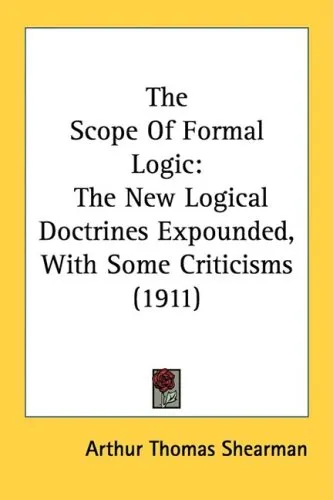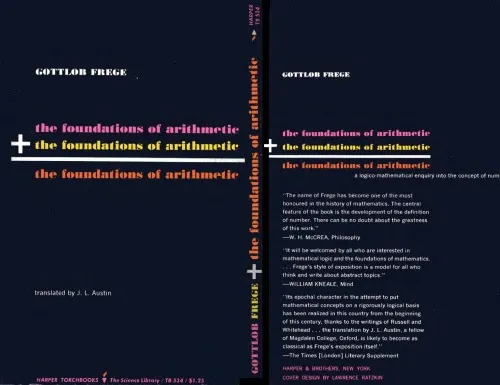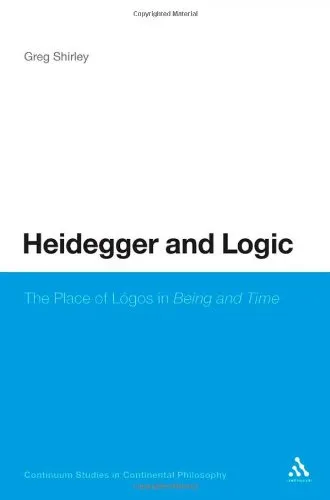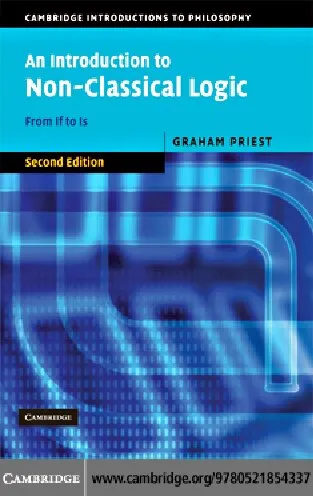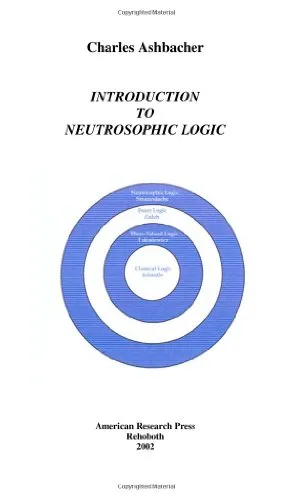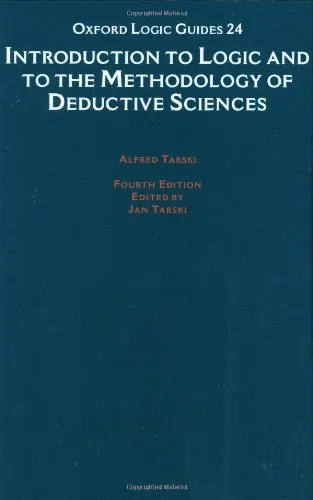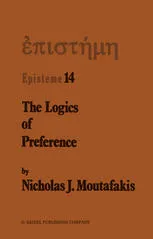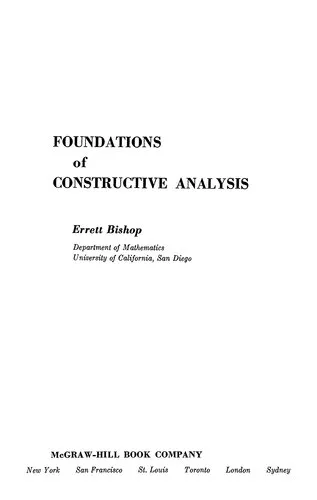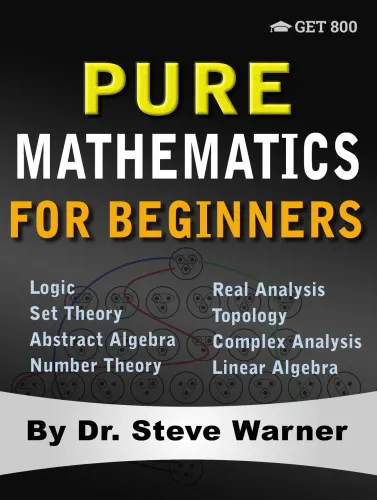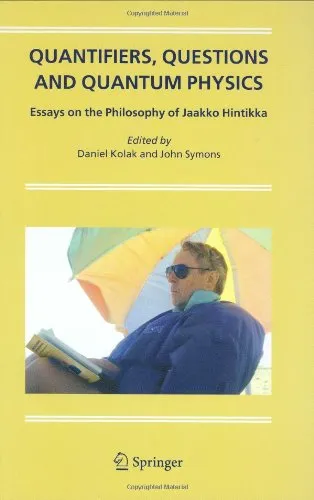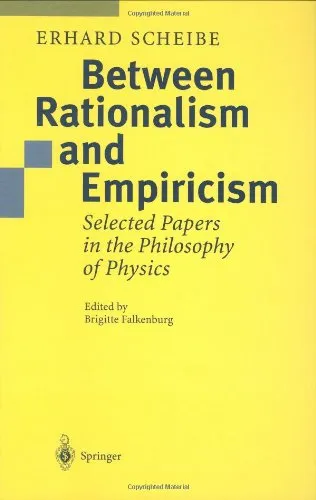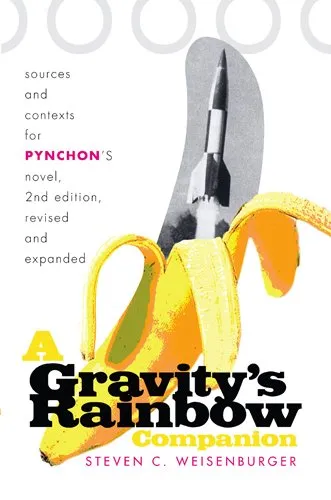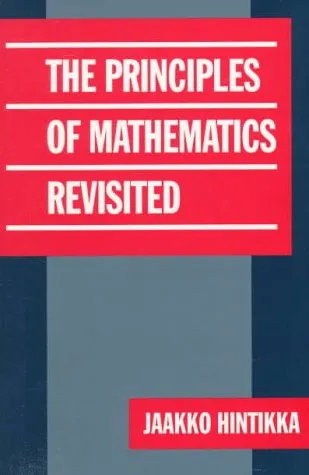The Scope of Formal Logic: the New Logical Doctrines Expounded, With Some Criticisms
4.8
Reviews from our users

You Can Ask your questions from this book's AI after Login
Each download or ask from book AI costs 2 points. To earn more free points, please visit the Points Guide Page and complete some valuable actions.Related Refrences:
Welcome to an exploration of the intricate and often profound world of formal logic, where deductive reasoning reigns supreme and where we critically engage with understanding not just the principles but the very scope of logical doctrines. "The Scope of Formal Logic: the New Logical Doctrines Expounded, With Some Criticisms" offers a meticulous examination of the evolution and implications of formal logic, a field that has shaped the intellectual landscape across varied disciplines.
Detailed Summary of the Book
In "The Scope of Formal Logic," we delve into the foundational tenets and emerging hypotheses within the realm of logic. The book systematically dismantles traditional views and considers modern revisions and expansions in logic theory. This critical work pivots around the doctrines that have historically been seen as unassailable, yet seeks to unveil their limitations through scrutiny and comparison with contemporary theories.
The text begins by addressing the classical roots of formal logic, particularly focusing on Aristotelian principles, and tracks its evolution through to modern symbolic and mathematical logic. Throughout its chapters, the book places a strong emphasis on the methodologies used by logicians to derive truth from axioms and theorems, the logical derivations that form the backbone of scientific inquiry.
Key themes include the clarity provided by symbolic notation, the nature of logical paradoxes, and the potential for expansion within formal logical systems. Additionally, the book does not shy away from controversy, rigorously critiquing such perspectives as misplaced concreteness in logical positivism and the presumed infallibility of mathematical logic.
Key Takeaways
- Understanding of formal logic's history and essential doctrines.
- Insight into new logical doctrines and their implications.
- Critical assessment of the strengths and weaknesses within formal logic systems.
- Exploration of logic’s role in the broader scientific and philosophical landscapes.
Famous Quotes from the Book
"Logic is the anatomy of thought, and to dissect a thought, one must first accept the knife cuts both ways."
"To expand the boundaries of logic is to embrace uncertainty, for it is within the shadows of what we do not know that the light of understanding forms."
Why This Book Matters
"The Scope of Formal Logic" stands as a pivotal examination not only of the methods and conclusions of logic but of its very applicability in a modern context. As societies evolve and the complexities of information grow, the capability to dissect and understand arguments through logical analysis becomes ever more crucial. This book equips readers with a nuanced perspective of logic’s diverse applications, empowering them to recognize the intersections between logic, philosophy, and practical reasoning.
For scholars, students, and enthusiasts of logic or philosophy alike, Arthur Thomas Shearman's work provides an essential resource that challenges readers to rethink their assumptions and deepen their understanding of one of humanity's most profound tools for discerning truth. It is both a compendium of current thought and a call to future exploration, ensuring it holds relevance for anyone eager to engage with or develop upon the rich tapestry of logical study.
In conclusion, "The Scope of Formal Logic" not only serves as a guide to the principles and probable futures of logical doctrines but also as a mirror reflecting the intellectual journey humanity has embarked upon. It is an indispensable text for anyone looking to grasp the complexities and beauty of formal logic.
Free Direct Download
You Can Download this book after Login
Accessing books through legal platforms and public libraries not only supports the rights of authors and publishers but also contributes to the sustainability of reading culture. Before downloading, please take a moment to consider these options.
Find this book on other platforms:
WorldCat helps you find books in libraries worldwide.
See ratings, reviews, and discussions on Goodreads.
Find and buy rare or used books on AbeBooks.
1350
بازدید4.8
امتیاز0
نظر98%
رضایتReviews:
4.8
Based on 0 users review
Questions & Answers
Ask questions about this book or help others by answering
No questions yet. Be the first to ask!
